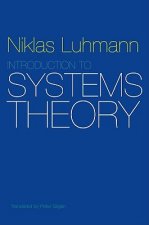
Code: 04939042
Emergence and Embodiment
Emerging in the 1940s, the first cybernetics - the study of communication and control systems - was mainstreamed under the names Artificial Intelligence and computer science and taken up by the social sciences, the humanities, and ... more
- Language:
 English
English - Binding: Hardback
- Number of pages: 296
Publisher: Duke University Press, 2009
- More about this

128.28 €
Availability:
50/50 We think title might be available. Upon your order we will do our best to get it within 6 weeks.
We think title might be available. Upon your order we will do our best to get it within 6 weeks.We search the world
You might also like
-

Cantaoras
181.42 € -

Uterine Pathology
130.40 € -14 % -

Complementation and Case Grammar
120 € -

Communication Highwire
43.93 € -

Health Law
46.05 € -

Advanced English Writing Skills: Masterclass for English Language Learners. How to Write Effectively & Confidently in English: How to Write Essays, Su
14.23 € -2 % -

RUTAS Intermedio - Arbeitsbuch für Spanisch als fortgeführte Fremdsprache in der Einführungsphase der gymnasialen Oberstufe in Nordrhein-Westfalen u.a
39.79 €
Give this book as a present today
- Order book and choose Gift Order.
- We will send you book gift voucher at once. You can give it out to anyone.
- Book will be send to donee, nothing more to care about.
Availability alert
Enter your e-mail address and once book will be available,
we will send you a message. It's that simple.
More about Emergence and Embodiment
You get 321 loyalty points
 Book synopsis
Book synopsis
Emerging in the 1940s, the first cybernetics - the study of communication and control systems - was mainstreamed under the names Artificial Intelligence and computer science and taken up by the social sciences, the humanities, and the creative arts. In "Emergence and Embodiment", Bruce Clarke and Mark B. N. Hansen focus on cybernetic developments that stem from the second-order turn in the 1970s, when the cyberneticist Heinz von Foerster catalyzed new thinking about the cognitive implications of self-referential systems. The crucial shift he inspired was from first-order cybernetics' attention to homeostasis as a mode of autonomous self-regulation in mechanical and informatic systems, to second-order concepts of self-organization and autopoiesis in embodied and metabiotic systems. The collection opens with an interview with von Foerster and then traces the lines of neocybernetic thought that have followed from his work. In response to the apparent dissolution of boundaries at work in the contemporary technosciences of emergence, neocybernetics observes that cognitive systems are operationally bounded, semi-autonomous entities coupled with their environments and to other systems. Second-order systems theory stresses the recursive complexities of observation, mediation, and communication. Focused on the neocybernetic contributions of von Foerster, Francisco Varela, and Niklas Luhmann, this collection advances theoretical debates about the cultural, philosophical, and literary uses of their ideas. In addition to the interview with von Foerster, "Emergence and Embodiment" includes essays by Varela and Luhmann. It engages with Humberto Maturana and Varela's creation of the concept of autopoiesis, Varela's later work on neurophenomenology, and Luhmann's adaptations of autopoiesis to social systems theory. Taken together, these essays illuminate the shared commitments uniting the broader discourse of neocybernetics. The contributors include: Linda Brigham; Bruce Clarke; Mark B. N. Hansen; Edgar Landgraf; Ira Livingston; Niklas Luhmann; Hans-Georg Moeller; John Protevi; Michael Schiltz; Evan Thompson; Francisco J. Varela; and, Cary Wolfe.
 Book details
Book details
Book category Books in English Reference, information & interdisciplinary subjects Research & information: general Information theory
128.28 €
- Full title: Emergence and Embodiment
- Subtitle: New Essays on Second-Order Systems Theory
- Language:
 English
English - Binding: Hardback
- Number of pages: 296
- EAN: 9780822345817
- ISBN: 0822345811
- ID: 04939042
- Publisher: Duke University Press
- Weight: 569 g
- Dimensions: 244 × 161 × 25 mm
- Date of publishing: 30. October 2009
Trending among others
-

Deep Simplicity
12.62 € -19 % -

The Black Swan
11.20 € -6 % -

Human Use Of Human Beings
12.82 € -21 % -

Ethics of Information
45.85 € -

Linked
20.90 € -

Computer and the Brain
16.96 € -19 % -

Elements of Information Theory
124.44 € -5 % -

Introduction to Systems Theory
24.94 € -7 % -

Problems of Life
16.66 € -

Cybernetics, Second Edition
30.30 € -1 % -

Sync
11.30 € -28 % -

Nonlinear Dynamics and Chaos
89.49 € -

Introducing Chaos
10.09 € -22 % -

System Identification
124.95 € -

Information Theory
29.59 € -

God & Golem, Inc.
49.29 € -

Ant Colony Optimization
9.59 € -17 % -

Recursive Universe
14.13 € -21 % -

Systems and Models. Complexity, Dynamics, Evolution, Sustainability
25.04 € -9 % -

Repair
29.39 € -24 % -

System Identification 2e - A Frequency Domain Approach
166.77 € -5 % -

General Systems Theory: Problems, Perspectives, Practice
139.39 € -

Bioinformatics: An Introduction
115.86 € -

Social Life of Information
31.41 € -4 % -

Modeling Business Processes
60.40 € -16 % -

System Identification, Environmental Modelling, and Control System Design
178.19 € -

Fault Tolerant Control Design for Hybrid Systems
115.86 € -

Riccati Equation
126.26 € -

Object-Oriented Computer Simulation of Discrete-Event Systems
261.12 € -

Computational Beauty of Nature
71.11 € -

Cybernetics or Control and Communication in the Animal and the Machine
53.73 € -

Object-Oriented Computer Simulation of Discrete-Event Systems
261.12 € -

Student's Guide to Coding and Information Theory
36.76 € -

Optimal Control Theory
27.16 € -23 % -

Plan Prediction
115.86 € -

Introduction to Evolutionary Algorithms
209.30 € -

Introduction to Cybernetics
15.95 € -

Randomness Through Computation: Some Answers, More Questions
168.69 € -

Entropy Demystified: The Second Law Reduced To Plain Common Sense
32.21 € -

Brownian Motion, Martingales, and Stochastic Calculus
58.38 € -3 % -

Introduction to Complex Systems
126.26 € -

Design Structure Matrix Methods and Applications
62.42 € -7 % -

Fundamentals of Diffusion-Based Molecular Communication in Nanonetworks
96.46 € -1 % -

On Dialogue
149.70 € -

Selected Works of Joseph E. Stiglitz
269.30 € -

Mathematical Systems Theory
58.78 € -

Quantum Information Theory
90.20 € -

Metaphysics of Virtual Reality
43.73 € -

Knowledge-Based Intelligent System Advancements
200.81 €
Collection points Bratislava a 2642 dalších
Copyright ©2008-24 najlacnejsie-knihy.sk All rights reservedPrivacyCookies


 15549 collection points
15549 collection points Delivery 2.99 €
Delivery 2.99 € 02/210 210 99 (8-15.30h)
02/210 210 99 (8-15.30h)